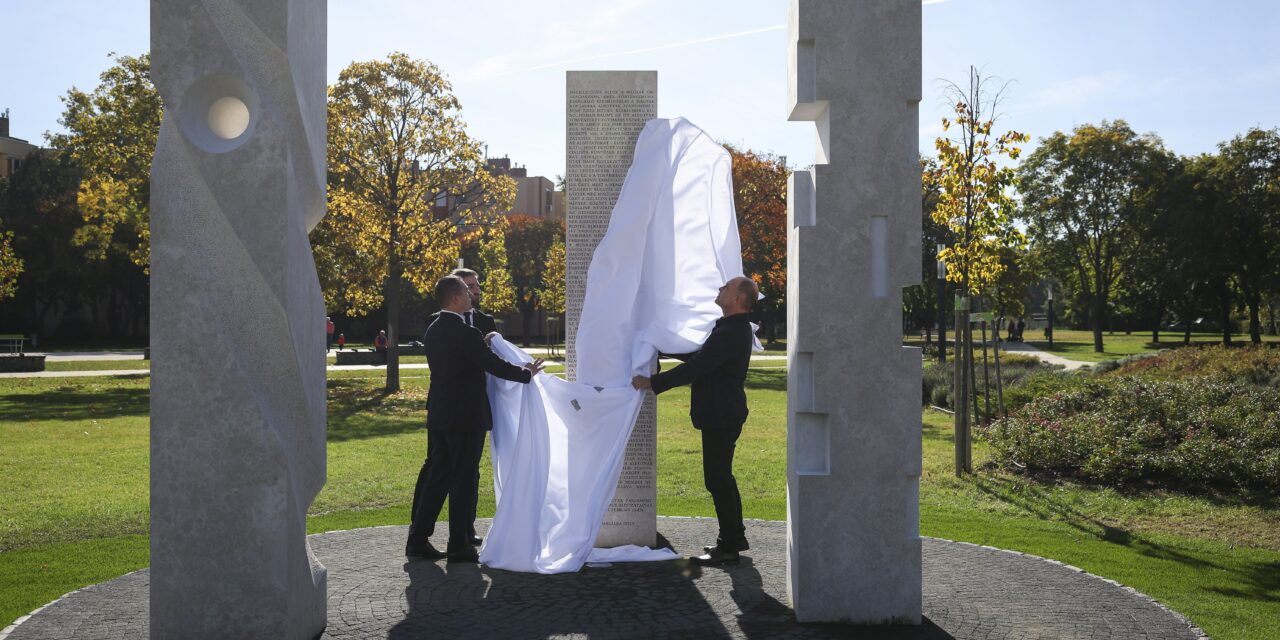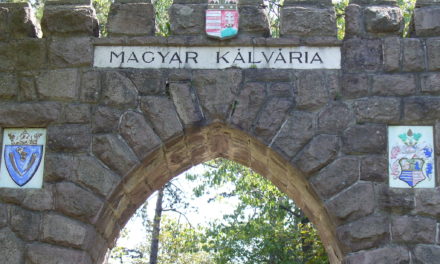It is the duty of posterity to remember and preserve the memory of heroes.
The Wittner Mária park in Csepel was completed with the inauguration of the monument honoring the hero of the 1956 war of independence on October 23, announced Budapest XXI. the mayor of his district on Monday, the national holiday.
Lénárd Borbély (Fidesz-KDNP) said at the opening ceremony, which was combined with the commemoration, that he was proud to have known Mária Wittner, who was an honorary citizen of Csepel, personally and even worked together in the parliament for four years.
The mayor reminded that a school building in a rather dilapidated condition used to stand on this site, after its demolition the park that has been named after Mária Wittner since October 23, 2022, and thus became the pride park of Csepel.
The mayor thanked the Közön Csepelért Civic Association, whose initiative, in cooperation with the local government, made the memorial park possible.
Quoting from the letter of the donors, Attila Szűcs and József Mercz, who financially supported the realization of the memorial park, the politician said: "it is the task of posterity to preserve the memory of the heroes with dignity, and with this monument they want to pay tribute to the memory of all the participants of the 1956 revolution and freedom struggle ".
Lénárd Borbély also emphasized that, in his opinion, "it would have been appropriate" if all members of the municipality, regardless of political party, had participated in the celebrations in Csepel.
Rajmund Fekete, director of the Communism Research Institute, said at the event that with the death of Mária Wittner on September 14 last year, one of the last giants of the revolution left us.
He recalled that even though he fled to Austria after the revolution, his heart pulled him home, his patriotism naively made him believe that he could avoid retaliation from Kadar. Despite this, he was arrested on July 16, 1957, and a week later he was sentenced to death for "participation in an armed organization, armed organization aimed at subverting the state order, attempted murder, armed robbery, defection" recalled.
Mária Wittner was held in a house of mourning for two hundred days and in prison for 13 years. She had to wait for her release until 1970, but there she was not free, but a prison in a broader sense. For decades, he was treated as a second-class citizen, a tolerated person, he added.
The fate of Mária Wittner was forever intertwined not only with her generation, but with the entire Hungarian nation. His courage, his loyalty to the nation and his faith exemplify for all of us that it is a duty to resist evil - the director of the institute praised the memory of the freedom fighter hero.
Rajmund Fekete said that in 1956 the Hungarians proved that they cannot live without freedom.
"In these October days, Hungarians showed their best face to the world. Being Hungarian meant courage, love of freedom, national unity and heroism," he added.
The memorial created by the sculptor Márk Lelkes was dedicated by the canon and the vicar Dénes Mosolygó, the festive program, which included the performance of Gyula Illyés's poem Egy mondat a tzarnokságór, was provided by the students of the Imre Baross artist and performing arts academy.
At the end of the commemoration, Mária Wittner's speech delivered in the parliament on February 25, 2001, the day of remembrance for the victims of communism, was played from a recording - the text of which can also be read on the memorial - and then the participants sang the Sermon together.
MTI













